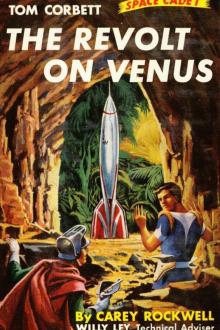Hypatia — or New Foes with an Old Face by Charles Kingsley (e book reader TXT) 📗

- Author: Charles Kingsley
Book online «Hypatia — or New Foes with an Old Face by Charles Kingsley (e book reader TXT) 📗». Author Charles Kingsley
Philammon hailed the question as a godsend.—Now for his message! And yet he faltered as he answered, with a desperate effort,—‘To rebuke you for your sins.’
‘My sins! What sins?’ she asked, as she looked up with a stately, slow surprise in those large gray eyes, before which his own glance sank abashed, he knew not why. What sins?—He knew not. Did she look like a Messalina? But was she not a heathen and a sorceress?—And yet he blushed, and stammered, and hung down his head, as, shrinking at the sound of his own words, he replied—
‘The foul sorceries—and profligacy worse than sorceries, in which, they say—’ He could get no farther: for he looked up again and saw an awful quiet smile upon that face. His words had raised no blush upon the marble cheek.
‘They say! The bigots and slanderers; wild beasts of the desert, and fanatic intriguers, who, in the words of Him they call their master, compass heaven and earth to make one proselyte, and when they have found him, make him two-fold more the child of hell than themselves. Go—I forgive you: you are young, and know not yet the mystery of the world. Science will teach you some day that the outward frame is the sacrament of the soul’s inward beauty. Such a soul I had fancied your face expressed; but I was mistaken. Foul hearts alone harbour such foul suspicions, and fancy others to be what they know they might become themselves. Go! Do I look like—? The very tapering of these fingers, if you could read their symbolism, would give your dream the lie.’ And she flashed full on him, like sun-rays from a mirror, the full radiance of her glorious countenance.
Alas, poor Philammon! where were thy eloquent arguments, thy orthodox theories then? Proudly he struggled with his own man’s heart of flesh, and tried to turn his eyes away; the magnet might as well struggle to escape from the spell of the north. In a moment, he knew not how, utter shame, remorse, longing for forgiveness, swept over him, and crushed him down; and he found himself on his knees before her, in abject and broken syllables entreating pardon.
‘Go—I forgive you. But know before you go, that the celestial milk which fell from Here’s bosom, bleaching the plant which it touched to everlasting whiteness, was not more taintless than the soul of Theon’s daughter.’
He looked up in her face as he knelt before her. Unerring instinct told him that her words were true. He was a monk, accustomed to believe animal sin to be the deadliest and worst of all sins—indeed, ‘the great offence’ itself, beside which all others were comparatively venial: where there was physical purity, must not all other virtues follow in its wake? All other failings were invisible under the dazzling veil of that great loveliness; and in his self-abasement he went on—
‘Oh, do not spurn me!—do not drive me away! I have neither friend, home, nor teacher. I fled last night from the men of my own faith, maddened by bitter insult and injustice—disappointed and disgusted with their ferocity, narrowness, ignorance. I dare not, I cannot, I will not return to the obscurity and the dulness of a Thebaid Laura. I have a thousand doubts to solve, a thousand questions to ask, about that great ancient world of which I know nothing—of whose mysteries, they say, you alone possess the key! I am a Christian; but I thirst for knowledge.... I do not promise to believe you-I do not promise to obey you; but let me hear! Teach me what you know, that I may compare it with what I know.... If indeed’ (and he shuddered as he spoke the words) ‘I do know anything!’
‘Have you forgotten the epithets which you used to me just now?’
‘No, no! But do you forget them; they were put into my mouth. I—I did not believe them when I said them. It was agony to me; but I did it, as I thought, for your sake—to save you. Oh, say that I may come and hear you again! Only from a distance—in the very farthest corner of your lecture-room. I will be silent; you shall never see me. But your words yesterday awoke in me—no, not doubts; but still I must, I must hear more, or be as miserable and homeless inwardly as I am in my outward circumstances!’ And he looked up imploringly for consent.
‘Rise. This passion and that attitude are fitting neither for you nor me.’
And as Philammon rose, she rose also, went into the library to her father, and in a few minutes returned with him.
‘Come with me, young man,’ said he, laying his hand kindly enough on Philammon’s shoulder.... ‘The rest of this matter you and I can settle;’ and Philammon followed him, not daring to look back at Hypatia, while the whole room swam before his eyes.
‘So, so I hear you have been saying rude things to my daughter. Well, she has forgiven you—’
‘Has she?’ asked the young monk, with an eager start.
‘Ah! you may well look astonished. But I forgive you too. It is lucky for you, however, that I did not hear you, or else, old man as I am, I can’t say what I might not have done. Ah! you little know, you little know what she is.—and the old pedant’s eyes kindled with loving pride. ‘May the gods give you some day such a daughter!—that is, if you learn to deserve it—as virtuous as she is wise, as wise as she is beautiful. Truly they have repaid me for my labours in their service. Look, young man! little as you merit it, here is a pledge of your forgiveness, such as the richest and noblest in Alexandria are glad to purchase with many an ounce of gold—a ticket of free admission to all her lectures henceforth! Now go; you have been favoured beyond your deserts, and should learn that the philosopher can practise what the Christian only preaches, and return good for evil.’ And he put into Philammon’s hand a slip of paper, and bid one of the secretaries show him to the outer door.
The youths looked up at him from their writing as he passed, with faces of surprise and awe, and evidently thinking no more about the absurdity of his sheepskin and his tanned complexion; and he went out with a stunned, confused feeling, as of one who, by a desperate leap, has plunged into a new world. He tried to feel content; but he dare not. All before him was anxiety, uncertainty. He had cut himself adrift; he was on the great stream. Whither would it lead him? Well—was it not the great stream? Had not all mankind, for all the ages, been floating on it? Or was it but a desert-river, dwindling away beneath the fiery sun, destined to lose itself a few miles on, among the arid sands? Were Arsenius and the faith of his childhood right? And was the Old World coming speedily to its death-throe, and the Kingdom of God at hand? Or was Cyril right, and the Church Catholic appointed to spread, and conquer, and destroy, and rebuild, till the kingdoms of this world had become the kingdoms of God and of His Christ! If so, what use in





Comments (0)